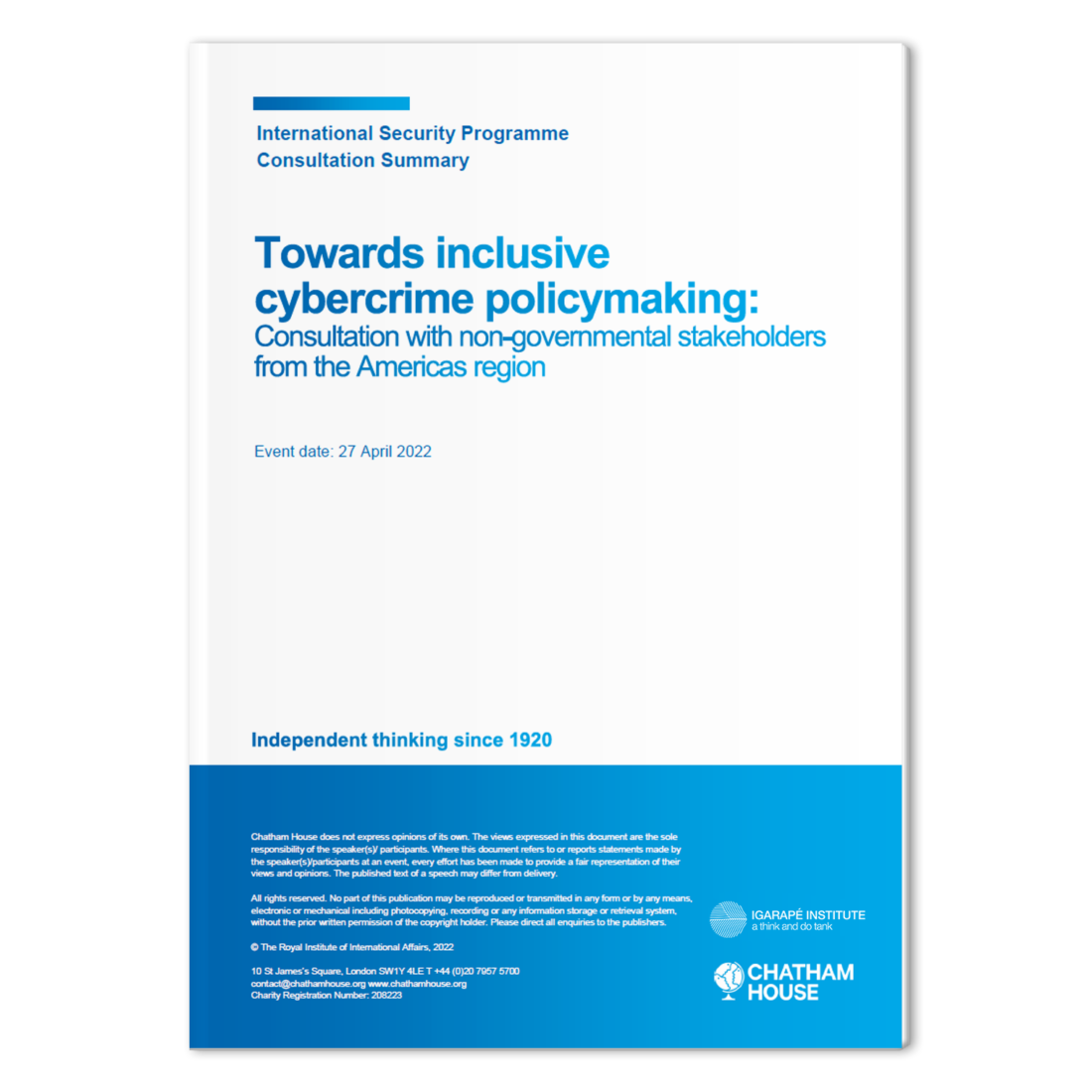Towards inclusive cybercrime policymaking: consultation with non-governmental stakeholders from the Americas region
The Americas have been a global hotspot when it comes to the spread of cybercrime. In the region, different types of already known threats have been adapted along with the digital transformation, for example: cryptocurrencies is being used for money laundering, the increase of online fraud cases, online drug trafficking and child abuse and women. Some countries have proposed their own legislation to deal with cybercrimes, as long as 10 states in the region have signed the Budapest Convention on the topic.
At the UN, a new Convention is being discussed within the framework of the Ad Hoc Committee on Cybercrime. Since the beginning of the negotiations, the Igarapé Institute has been positioning itself so that the discussions of the convention can be oriented towards human rights protection and also includes the demand of non-governmental actors in its elaboration process.
Regarding this context, the Igarapé Institute, together with Chatham House, promoted a consultation for more than 30 non-governmental actors from around the Americas. This extensive listening process led to the elaboration of the report “Towards inclusive cybercrime policymaking: Consultation with non-governmental stakeholders from the Americas region”. The purpose of the document is to make the decision makers of the new cybercrime convention able to take into account the demand of these actors in the negotiation processes, towards a more inclusive and broader convention against cybercrimes.
Read the publication



